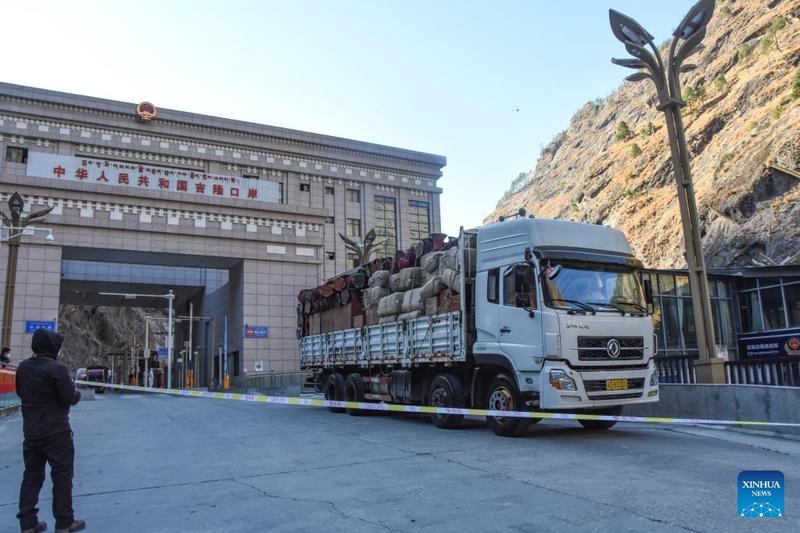Preparations underway to slowly return foreign transits to pre-pandemic levels
 A truck loaded with goods from Nepal enters the Gyirong port in Southwest China's Tibet autonomous region, Dec 28, 2022. The Gyirong port, the largest land border crossing between China and Nepal, has resumed two-way trade. (PHOTO / XINHUA)
A truck loaded with goods from Nepal enters the Gyirong port in Southwest China's Tibet autonomous region, Dec 28, 2022. The Gyirong port, the largest land border crossing between China and Nepal, has resumed two-way trade. (PHOTO / XINHUA)
China will gradually reopen cross-border passenger transport via road starting on Sunday, according to a work plan released by the Ministry of Transport following the nation's adjustment in its COVID-19 policies.
Local transport departments are required to propose plans to restore cross-border services by studying previous international passenger volumes, market demand and the development of enterprises that provide international road transportation.
Communication with authorities overseas will be strengthened, and after both parties reach an agreement upon the resumption of services, the information will be released to the public.
The authority should assist enterprises to renew their operation permits and inspect vehicles, according to the plan.
It will strengthen cooperation with foreign transport service providers and bus stations, as well as ensure facilities along routes such as rest stops and gas stations are operating.
Training should also be provided before the resumption of services to improve drivers' understanding of transport policies and epidemic control measures.
For international cruise ships, pilot programs will be carried out first and then full services will be phased in.
The country will also offer more convenience for Chinese and foreign sailors to change shifts in China.
According to a statement released by the General Administration of Customs last week, provinces and autonomous regions will promote the orderly and steady resumption of transportation at borders.
It also said that all nucleic acid testing for COVID-19 for imported food at ports will be canceled starting on Sunday.
China announced last week it was downgrading its management of COVID-19 from Class A to Class B.As a major change to the country's antivirus strategy, the downgrade will ease restrictions for inbound travelers, and they will no longer have to undergo quarantine or take a nucleic acid test upon arrival in China.
Yang Zekun contributed to this story.


